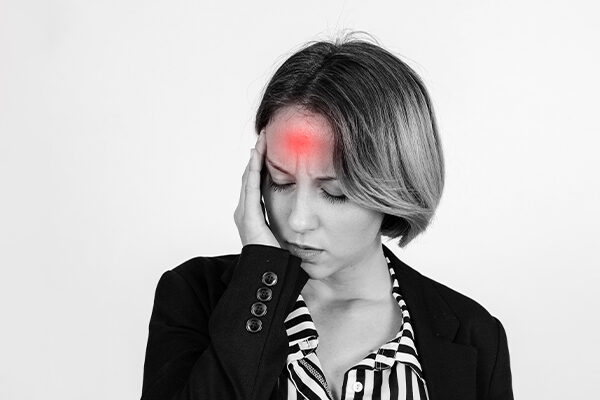Last Updated on October 4, 2023
What Is A Distended Bladder?
The bladder is a muscular organ that stores urine expelled during urination. A distended bladder is when it gets inflamed or stretched due to an external or internal source, causing frequent urination. Of the many symptoms associated with a distended bladder, urine leaks (urinary incontinence), frequent urge to urinate, and pain in the abdomen, lower back, and bladder are common. The intensity of pain may vary and worsen depending on the pressure exerted upon the bladder. The three common causes of bladder pain are interstitial cystitis, urinary tract infection, and bladder cancer. Treatment for a distended bladder typically involves addressing the underlying cause. It is essential to seek medical attention if you suspect you have a distended bladder, as it can lead to complications if left untreated.
Revive Research Institute conducts multiple clinical trials across Michigan, Illinois and Texas. If you or someone you know reports a feeling of painful urination, participate in bladder pain clinical trials to gain access to potential novel solutions that might help you find relief from painful circumstances.
In this blog post, you will get a chance to delve into the causes, symptoms, and treatment options for a distended bladder. Read on to learn more!
What Causes A Distended Bladder?
A constant feeling of pressure on the bladder makes it difficult to determine if the urge to urinate is genuine. A distended bladder may result from various factors and underlying medical conditions that adversely impact the normal filling and emptying of the urinary bladder. Some common causes of a distended bladder include:
Infections
Severe urinary tract infections (UTIs) can cause inflammation and swelling of the bladder lining, making it difficult for the bladder to contract and empty properly, resulting in a distended bladder. In response to these infections, an increased urge to urinate impacts the strength and capacity of the bladder over time. This may gradually diminish the bladder’s elasticity, leaving it enlarged or swollen.
Medications
A few individuals might experience unusual symptoms, including urinary incontinence or other side effects upon taking medications without prescriptions. Certain medications, such as antihistamines or decongestants, can affect bladder function and lead to urinary retention, particularly in men. Therefore, consult your doctor about possible side effects or interactions before starting a new drug.
Neurological conditions
The nervous system plays a vital role in controlling the bladder and urinary tract. The controlling mechanism is that some of the specific regions of the brain, spinal cord, and peripheral nerves work in coordination to ensure the timely and efficient storage and release of urine. As a result of certain neurological conditions like multiple sclerosis and paralysis, the ability to empty the bladder regularly gets affected, increasing the pressure on the bladder and amplifying the chance of bladder distention.
Pregnancy
In response to hormonal changes, reduced bladder capacity, and pressure on the bladder, most women happen to have a distended bladder in which the bladder becomes overly full or stretched due to an inability to empty it properly.
Listed above are the common factors that may contribute to the development of a distended bladder. However, it is essential to determine the underlying cause of it, which may enable the choice of the appropriate treatment accordingly, such as catheterization to emptying the bladder, medication, surgery, or management of the underlying medical condition.
Is Bladder Distention Normal?
The incidence of a distended bladder arising from the obstruction of the urinary system is normal. In the presence of urinary obstruction, the bladder has to work hard to pass the urine past the stone or tumor obscuring the passage. As a consequence, there is a loss of elasticity in the bladder walls. The commonly identified forms of bladder obstruction are kidney stones and tumors. Prompt recognition of these conditions can help prevent the bladder from becoming enlarged.
Is Bladder Pain Syndrome The Same As A Distended Bladder?
While bladder pain syndrome (BPS) may share the same symptoms as a distended bladder, these are two distinct medical conditions with different characteristics. Another name for bladder pain syndrome (BPS) is interstitial cystitis (IC). It causes recurring and often debilitating pelvic pain, pressure, discomfort, and other symptoms such as frequent and urgent urination, chronic pain during urination, and lower abdominal pain. The pain’s intensity can vary and may increase as the bladder fills with urine. This condition can profoundly affect an individual’s quality of life, resulting in sleep disturbances, anxiety, and depression.
Can A Distended Bladder Go Back To Normal?
While it is impossible to return a distended bladder to normal, following appropriate management measures can help manage symptoms such as urinary urgency, frequency, and incomplete emptying and significantly reduce the stress and discomfort experienced by the affected individual.
Some of the management measures suggested are:
- Medications that relax the bladder muscles, reduce inflammation and eradicate infections. It may alleviate some of the discomfort associated with an enlarged bladder.
- Intermittent catheterization is a procedure that involves using a catheter to empty the bladder at regular intervals and to prevent it from becoming overly distended.
- Lifestyle modifications such as drinking plenty of water, avoiding bladder irritants (like caffeine and certain foods), and practicing pelvic floor exercises (Kegels) can help ease pain associated with a distended bladder.
- Surgical interventions are necessary in severe cases involving obstruction or that require the repair of anatomical abnormalities to relieve the pressure on the bladder.
- Regular monitoring and checkups.
About Bladder Pain Clinical Trials
If you or someone you know suffers from urinary discomfort or chronic pain due to bladder pain syndrome, taking a toll on their life and limiting their productivity, participate in Revive Research Institute’s bladder pain clinical trials in Michigan.
There is a specific eligibility that you will be evaluated on to see if you qualify for the study:
- If you are a female between 18 – 70 years
- Have a diagnosis of Interstitial Cystitis (IC) and Bladder Pain Syndrome (BPS)
- Have had bladder pain or discomfort with lower urinary tract symptoms for at least six months
Click to explore more clinical trials for Womens Health.
Takeaway
In conclusion, a distended bladder, a less commonly discussed topic, can be a challenging condition, but with timely diagnosis and appropriate treatment, individuals can find relief and prevent further complications. If you or a loved one experiences symptoms of a distended bladder, it’s essential to seek medical attention promptly. Understanding the causes and available treatment options is the first step towards managing this condition and maintaining good urological health.




